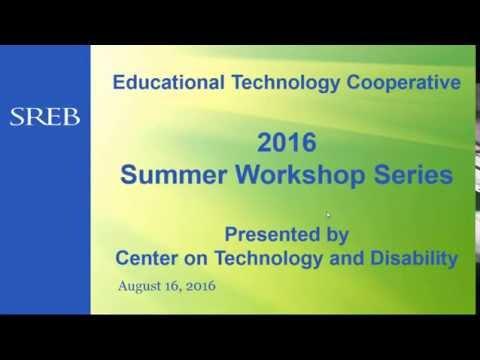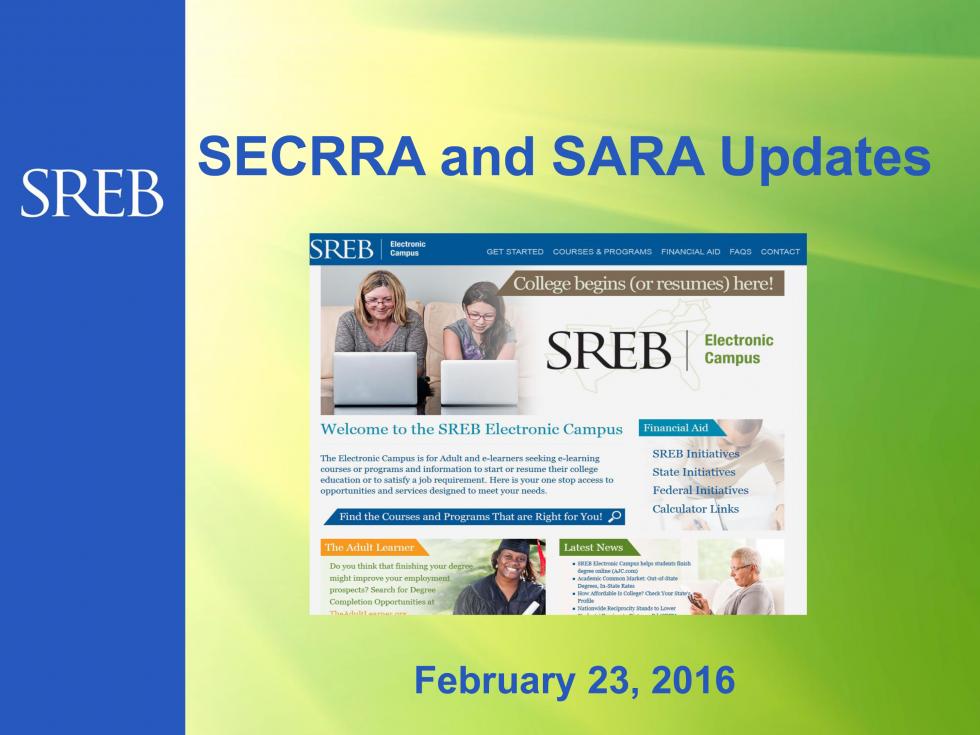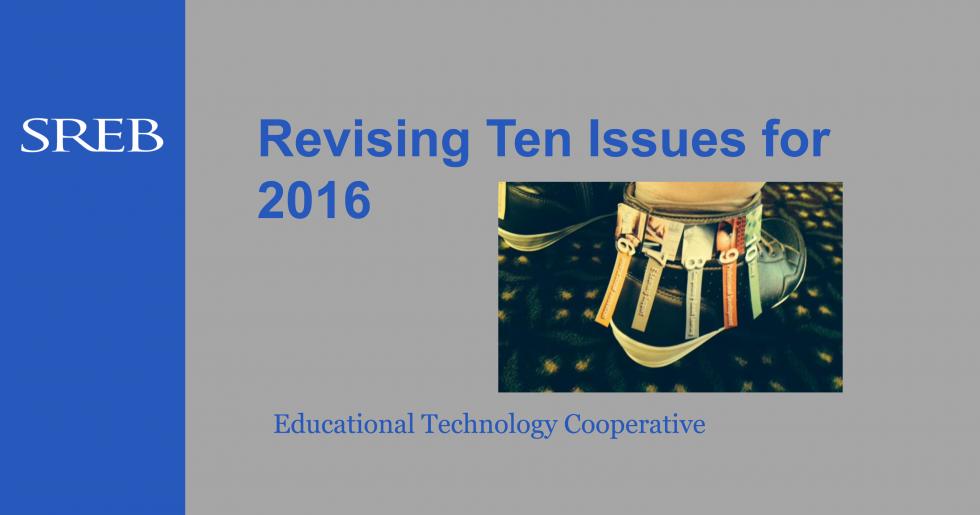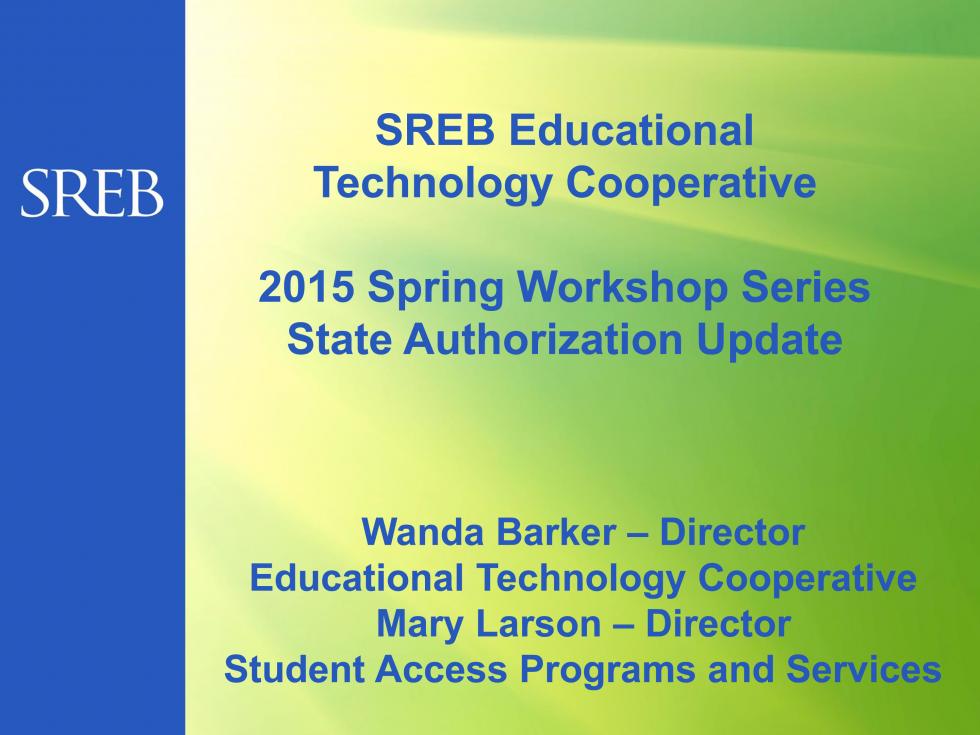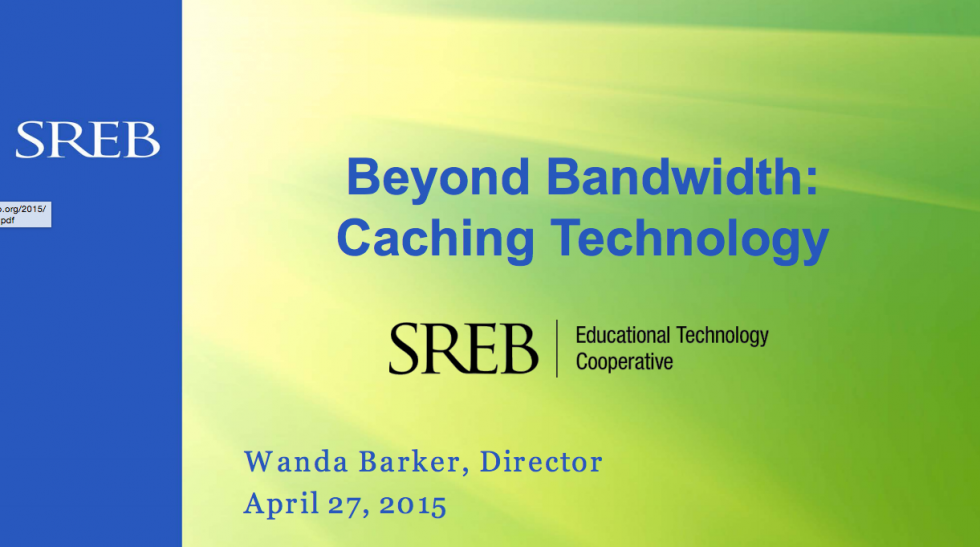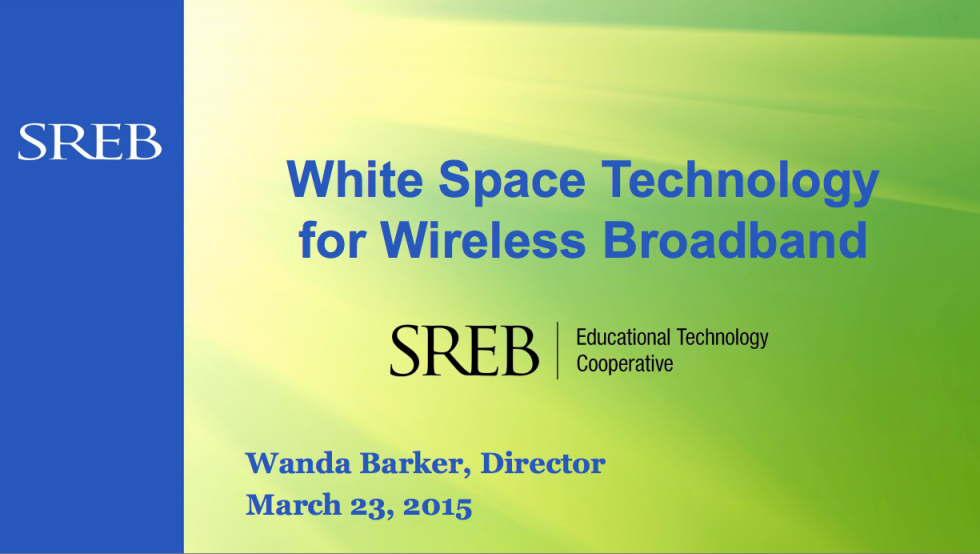ETC Webinars
Making the Most of Ed Tech Under ESSA
Presenter
Dr. Kim Anderson, SREB Senior Policy Researcher
During this session, members received valuable information on Legislative context for the work moving forward, including information on how Ed Tech fits on the Federal and State level. Members also learned about trends in state use of ed tech, and about resources for assessing the effectiveness of ed tech and digital learning resources.
Coursetune
Rapid Protoyping Curriculum to Meet Today's Educational Demands
Presenters
Diane Weaver, Coursetune Co-Founder
Dr. Maria Andersen, Coursetune Co-Founder
Will Kerr, Assistant Director of Course and Program Design for Georgia State University
Understanding Accessibility
Policy and Implications for State Leaders
What do we mean when we talk about accessibility and why should
it be on your radar screen? Join us for a discussion on the
legal requirements related to accessibility, particularly as
it relates to recent legislation. Understand the opportunities
and challenges presented by emerging technologies and
considerations for your technology planning and
purchasing decisions.
SARA and SECRRA Update
An update on the status of states and institutions in the SREB region, as well as the national status of states and institutions. We have received many quest ions on this topic: When will SECRRA be dissolved? How will this affect my institution/agency? What will happen to the Electronic Campus? Will I still need to list my online courses? What is the timeline for all of these changes? Answers to these questions, as well as others you may have.
Revising 10 Issues for 2016
Learn about the Top 10 of other organizations, predictions for technology and policy issues for 2016, and provide your input and perspective for issues your agencies face in the coming years. Discuss the pros and cons of the list developed at the 2015 Fall Meeting and help to determine YOUR action agenda for the SREB Educational Technology Cooperative!
State Authorization Update
The success of states joining the national reciprocity movement has exceeded expectations of the National Council for State Authorization Reciprocity Agreements (NC-SARA). Join us to find out the latest information on states that have joined national reciprocity through NC-SARA, status of states in the SREB region on national reciprocity, and what that means for the SREB Electronic Campus Regional Reciprocity Agreement (SECRRA) and institutions in the SREB region.
Beyond Bandwidth: Caching Technology
After broadband connectivity is established, what types of technologies can help schools or colleges make the most efficient use of their bandwidth? Join us for this session that discusses caching technology for efficient use of bandwidth and support of students that do not have Internet at home. Get the FCC perspective for e-Rate, as well as the classroom teacher and principal point of view.
White Space Technology for Wireless Broadband
The world’s first commercial white space network was launched in Wilmington, NC, in 2012. Wilmington was chosen because it was the first US city to shift from analog to digital, allowing the city to take advantage of the unused analog spectrum for wireless transmission of the Internet in parks, county buildings, and emergency services.


